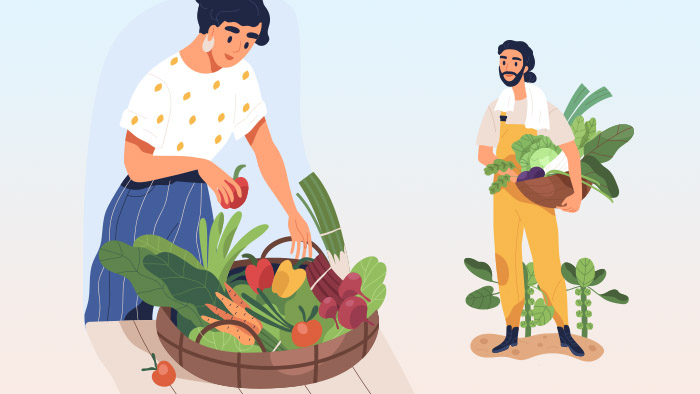
What you eat not only impacts your body, it also impacts the planet. Fortunately, you can make healthy choices for your body and healthy choices for the world. Learning more about eco-friendly eating and making a few sustainable swaps can help you feel your best while helping the earth to thrive.
Consider these four simple steps to transform your eating habits to be more eco-friendly:
Shop small and local
Instead of defaulting to the grocery store or ordering from a warehouse for home delivery, consider shopping locally. Even doing this once or twice a month to supplement your household needs can make a big difference. Consolidate your shopping and take fewer trips to make the most of each visit.
Not only are you sourcing goods closer to home - and therefore cutting down on carbon emissions associated with production and shipping items - you are supporting community businesses and helping your neighbours thrive. Research local bakeries, family-owned cafes, co-ops and more to feel good every time you shop.
Get produce locally
When it comes to things like fruits, vegetables and herbs, fresh is the best. And there's no better way to enjoy fresh than when you get foods as close to the source as possible. For some people, this means growing their own garden for fresh produce just outside their door. Another option is an indoor herb garden for convenient year-round fresh flavours.
Buy carbon-neutral products
Research and support carbon-neutral or carbon-free companies. This means the organization is removing the same amount of carbon dioxide that it is producing, creating net-zero carbon emissions.
Choose organic foods
To reduce the amount of chemicals in a food or used to create it, some people look for items labeled natural when shopping. The problem with the term "natural" is it isn't highly regulated and often can be misleading. The best way to ensure you're eating foods that were grown without the use of manmade fertilizers or pesticides is to look for certified organic items.
Organic farming practices promote ecological balance, so when you choose organic foods, you're eating more sustainably. Fruits and vegetables are often what people think of when shopping organic, but you can also choose organic eggs, dairy and meat, which means they are given no antibiotics or growth hormones, and oftentimes are provided an organic food diet themselves.
The choices you make influence both your health and the health of the planet. These four steps can make a difference for both. /BPT